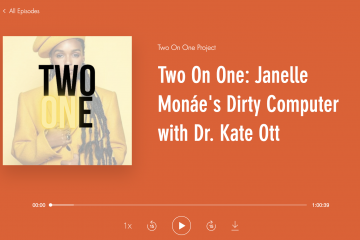When it comes to advertising, it’s difficult to know whether the content is reflecting society or shaping it. In many ways, I think it is a delicate balance of both. A Tide commercial which many of you may have already seen has caught my attention time and again.
http://www.youtube.com/watch?v=xCYwAOCLiTA
I’ll admit that I’m partly drawn to this commercial because my husband does most of the laundry. As a toddler, my daughter was very messy. She took pride in telling others, “Don’t worry, my Daddy will wash it.” As feminist parents, we both took pride in the disruption this simple comment lead to in most people’s assumptions about how our family divided tasks.
The very first lessons young children learn about sexuality have to do with how we treat our bodies and what gender means, or more precisely how gender shapes our world and their participation in it! We shape a child’s gender identity (how they understand aspects of themselves – traits and behaviors – as masculine and feminine) by the name and clothes we choose, the way we talk to the baby, maybe even the way we hold and cuddle the baby. This simple distinction begins crafting a child’s sexuality before she or he can even talk or walk.
Gender identity is often based on the socially constructed gender roles that a society has already predetermined. Somewhere along the line, kids often become the worst gender police. Because gender is often the basis for bullying and discrimination, an integral part of sexuality education is helping children understand and negotiate gender. Learning to navigate what society expects of gender is different than requiring compliance with it. At an early age, some parents limit children’s interests and creativity by allowing sex and gender to determine the clothes they can wear or the activities they do. While I do not think a child’s gender should determine what they can or cannot do, telling children that gender doesn’t matter and that they can do whatever they please is a very confusing statement to a child (if not a lie).
Gender does matter. There is still great inequality in our world based on the sex and gender of people. Children learn that differences exist across genders quite readily. The question is do grown-ups reinforce the gender stereotypes or do they support gender equity. That’s why I love the Tide commercial. Every other laundry commercial I have ever seen (and I’m sure that add up to hours of my life) features women, mostly white, middle class moms. Now, this commercial doesn’t disrupt the racial or economic stereotypes, but it suggest that men—men with young children, daughters even—do the laundry and engage in imaginary play with their daughters.
My husband and I did not determine household duties by who was male and who was female. We talked through who had which strengths, skills, and desires for different activities. We can both mow a lawn. But my spouse loves to green up a yard, pull weeds, and mulch. I have no interest in growing something you can’t eat; so I garden. My spouse is also very organized about grocery shopping and stocking the fridge. I, on the other hand, enjoy cooking. I also like to buy presents and write thank you notes. So I keep track of the birthday parties and the gifts received. We share the parental duties of childcare equally, including homework, bedtime, morning routines, and so on.
These are small examples—some correspond to our assigned cultural gender roles, but they were not chosen because of them. We are also not rigid about who has to do them. In fact, we consciously talk about these decisions in front of our children. Confronting, negotiating, and engaging gender is an on-going process, not a single moment. If we want young girls and boys to feel valued for who God created them to be, not what society says their gender requires of them, then we need a whole lot more Tide commercials AND everyday conversation in our families that promote gender equality.

